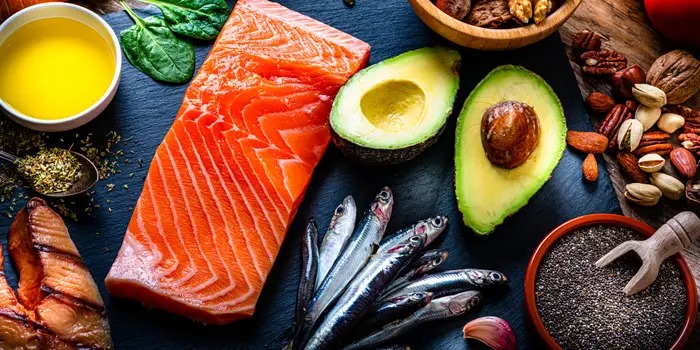While the term "omega-3s" has become a buzzword in nutrition circles, many people still don’t fully understand what these fatty acids are or why they’re so critical to human health. The truth is, omega-3s are essential fats—meaning your body absolutely needs them but can’t produce them on its own. That makes dietary sources (or supplementation, when necessary) the only way to meet your daily requirement.
Omega-3 fatty acids support the body at nearly every level—from brain function and cardiovascular health to immune defense and even eye development. Despite this, most modern diets are significantly lacking in these important nutrients. Let’s break down the science and explore the different types, their sources, and the roles they play in maintaining overall health.
The Three Main Types of Omega-3s
Omega-3 fatty acids come in several forms, but three stand out as especially important for human health: ALA, EPA, and DHA.
ALA (Alpha-Linolenic Acid)
Alpha-linolenic acid, commonly referred to as ALA, is the most prevalent omega-3 fatty acid in plant-based foods. It’s found abundantly in flax seeds, chia seeds, hemp seeds, walnuts, canola oil, soybean products, and flaxseed oil. While your body doesn’t use ALA directly for structural or functional purposes, it does rely on it as a source of energy. More importantly, ALA has the capacity to be converted into the longer-chain omega-3s—EPA and DHA—although this process is relatively inefficient. Only a small fraction of the ALA consumed actually turns into DHA, so it's still important to consume EPA and DHA from other sources if possible.
Including ALA-rich foods in your diet regularly is a smart nutritional move—not just for the omega-3 content, but for the added fiber, protein, and antioxidant benefits many of these plant-based options also deliver.
EPA (Eicosapentaenoic Acid)
EPA is a long-chain omega-3 fatty acid found primarily in fatty fish, fish oil, and some marine algae. Its importance lies in its anti-inflammatory capabilities. The body uses EPA to produce molecules known as eicosanoids, which act as chemical messengers involved in inflammation, immunity, and blood pressure regulation. Chronic inflammation is linked to a range of diseases—including heart disease, autoimmune disorders, and even some types of cancer—so a regular intake of EPA can have a profound impact on long-term health.
EPA is also associated with improved mood and may help reduce symptoms of depression and anxiety in some individuals. Although it can be synthesized from ALA, the conversion rate is quite low, making direct consumption from marine sources or high-quality supplements the most effective approach.
DHA (Docosahexaenoic Acid)
Of all the omega-3 fatty acids, DHA is the most structurally vital for the human body. It is a fundamental building block of the brain, retina, and many other parts of the central nervous system. In fact, DHA makes up a large percentage of the fat found in the human brain—especially in developing infants—and it plays a critical role in cognitive function, visual health, and neurological protection throughout life.
DHA is found mainly in fatty fish such as salmon, mackerel, sardines, and herring. It is also present in fish oil, krill oil, and algae-derived supplements. Animal products like grass-fed meat, eggs, and dairy may also contain small but beneficial amounts.
One important note: vegetarians and vegans often struggle to get enough DHA because it’s mostly found in animal-based sources. In these cases, algae oil supplements are the best alternative, offering a direct plant-based source of DHA.

Where to Find Omega-3s in Food
One of the simplest and most effective ways to increase your intake of omega-3 fatty acids is to include more of their natural sources in your diet. The ideal approach is to consume a variety of foods that offer different types of omega-3s—from both plant and animal origins.
Best Food Sources of Omega-3s
-
Fatty fish: Salmon, sardines, herring, mackerel, and anchovies are all excellent sources of both EPA and DHA. Eating these fish two to three times per week is a widely recommended strategy for supporting cardiovascular and brain health.
-
Fish oils: These concentrated oils provide high levels of EPA and DHA in supplement form. Cod liver oil is particularly rich in both omega-3s and vitamins A and D.
-
Chia seeds and flaxseeds: Both are rich in ALA and also provide fiber, antioxidants, and plant-based protein. Ground flaxseeds are easier to digest and absorb than whole ones.
-
Walnuts: A handful of walnuts offers a healthy dose of ALA and a satisfying, nutrient-dense snack option.
-
Hemp seeds: These tiny seeds are packed with protein, magnesium, and essential fatty acids, making them a popular choice in plant-based diets.
-
Algal oil: Derived from algae, this is one of the few plant-based sources of DHA and EPA. It’s especially useful for vegetarians and vegans who don’t consume fish.
While a varied diet that includes these foods can offer solid omega-3 support, not everyone finds it easy to eat fish regularly or add chia seeds to their meals every day. That’s where supplementation comes in.
Do You Need an Omega-3 Supplement?
If your regular meals don’t include fish, seafood, or a wide range of plant-based omega-3s, a supplement can help fill the gap. Many people opt for fish oil capsules, which deliver a potent dose of EPA and DHA, and are widely available in pharmacies and health stores. For those who avoid animal products, supplements made from algae oil provide an effective, plant-based alternative.
It's also worth noting that omega-3 supplements are sometimes found combined with other nutrients for added benefits. For example, some CBD oils and botanical tinctures include omega 3-6-9 fatty acids to support not just brain and heart health but also joint function and hormonal balance. Products like these may offer convenience and synergy, but always check labels for purity, dosage, and third-party testing.
Why Omega-3s Are Non-Negotiable
Omega-3 fatty acids aren’t just another trendy nutrient—they’re involved in nearly every major biological system in the body. Here are some of the most well-supported reasons why maintaining healthy omega-3 levels is so important:
-
Brain health: DHA supports cognitive development in infants and helps preserve memory and function in older adults.
-
Heart protection: EPA helps regulate triglyceride levels, reduces inflammation, and may support lower blood pressure.
-
Eye health: DHA is a key component of the retina and essential for maintaining visual acuity.
-
Joint support: Omega-3s help reduce stiffness and tenderness in people with rheumatoid arthritis.
-
Mood and mental well-being: Regular omega-3 intake has been linked to improved mood and lower risk of depression.
-
Inflammation control: Chronic inflammation is tied to numerous diseases, and omega-3s play a central role in reducing inflammatory markers.
In short, omega-3s are foundational—not optional.
Here’s Part 3 of the fully rewritten article “What Are Omega-3’s & Why Do Our Bodies Need Them?” continuing naturally from the previous section:
The Balance Between Omega-3 and Omega-6 Matters
While omega-3 fatty acids play a critical role in maintaining your health, they don’t act alone. In fact, their relationship with omega-6 fatty acids—a different type of essential fat—is a key part of the puzzle. Both omega-3 and omega-6 are necessary for body functions like immune response, brain activity, and cell structure. However, the balance between the two is crucial.
Most modern diets are heavy in omega-6s and lacking in omega-3s. Vegetable oils (like corn, sunflower, and soybean oil), processed snacks, and fried foods are major sources of omega-6, and when consumed in excess, they can contribute to systemic inflammation—especially if omega-3 intake is low. Ideally, the ratio between omega-6 and omega-3 should be close to 2:1 or even 1:1. Unfortunately, in Western diets, this ratio often balloons to 15:1 or higher.
Improving this balance isn’t just about cutting back on omega-6s. It’s about making sure your omega-3 levels are high enough to offset them. That means regularly consuming fatty fish, nuts, seeds, or using supplements when needed.
Signs You May Be Deficient in Omega-3s
If your body isn’t getting enough omega-3s, it will eventually send signals—though they’re not always easy to identify. Here are some potential signs that you might be running low on these essential fats:
-
Dry, rough, or flaky skin
-
Poor concentration or mental fatigue
-
Frequent mood swings or symptoms of depression
-
Joint discomfort or stiffness
-
Brittle nails or hair that lacks shine
-
Eyes that feel dry or irritated
-
Increased inflammation or slower healing times
It’s important to note that these symptoms can also be caused by other health issues, so if you suspect a deficiency, it’s worth speaking with a doctor or registered dietitian who can recommend blood testing or tailored dietary adjustments.
Daily Tips to Improve Your Omega-3 Intake
Making omega-3s a regular part of your nutritional habits doesn’t need to be complicated. Here are some simple strategies to get more of these fatty acids into your diet without overhauling your entire meal plan:
-
Add chia seeds or ground flaxseeds to oatmeal, yogurt, or smoothies
-
Snack on walnuts or mix them into salads
-
Include sardines or mackerel on toast or in pasta dishes
-
Try grilled salmon or trout for dinner once or twice a week
-
Use algal oil supplements if you’re on a plant-based diet
-
Choose omega-3 enriched eggs or dairy from grass-fed sources
-
Read supplement labels carefully for purity and concentration
Final Note on Long-Term Omega-3 Health
While a single serving of salmon or a tablespoon of flaxseed oil won’t change your health overnight, building omega-3s into your lifestyle can have lasting benefits for your heart, mind, skin, and immune system. Whether you get them from food or supplements, what matters most is consistency. Every step you take to improve the balance of fats in your diet helps support your long-term health.
And if you're not sure where to start, just begin small: one omega-rich meal per week, a handful of walnuts, or a capsule in the morning can set the foundation for a healthier, more resilient body.













